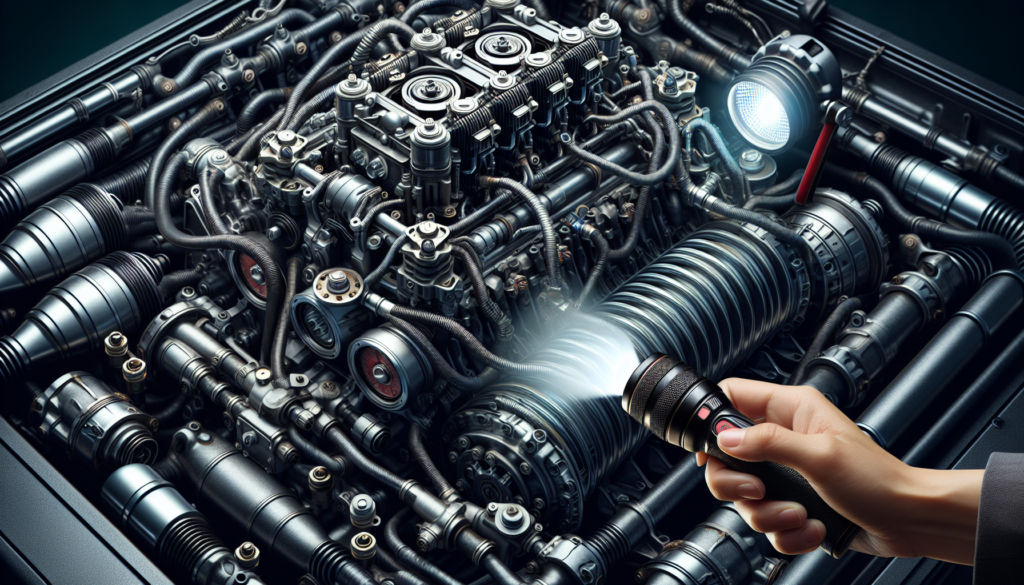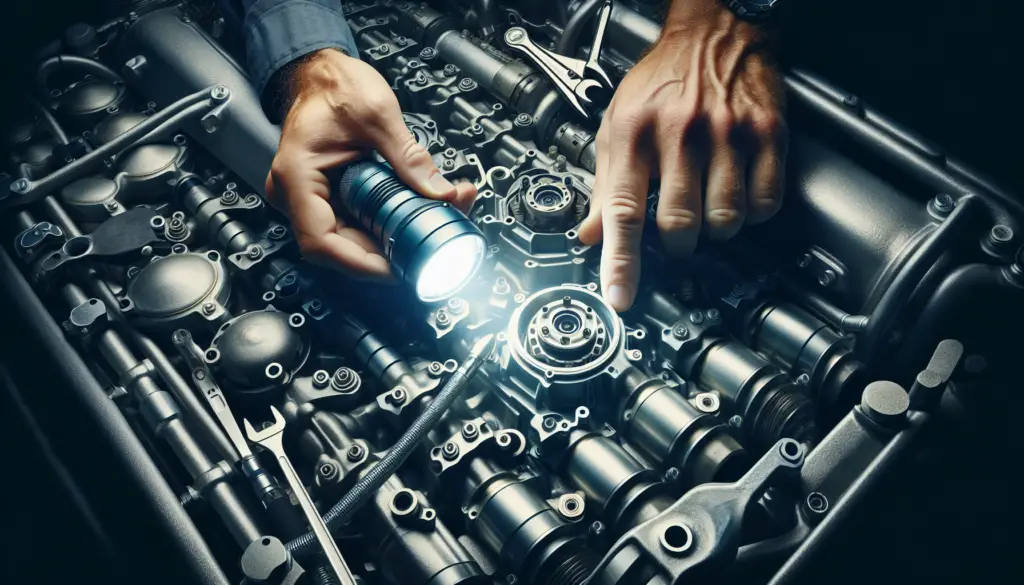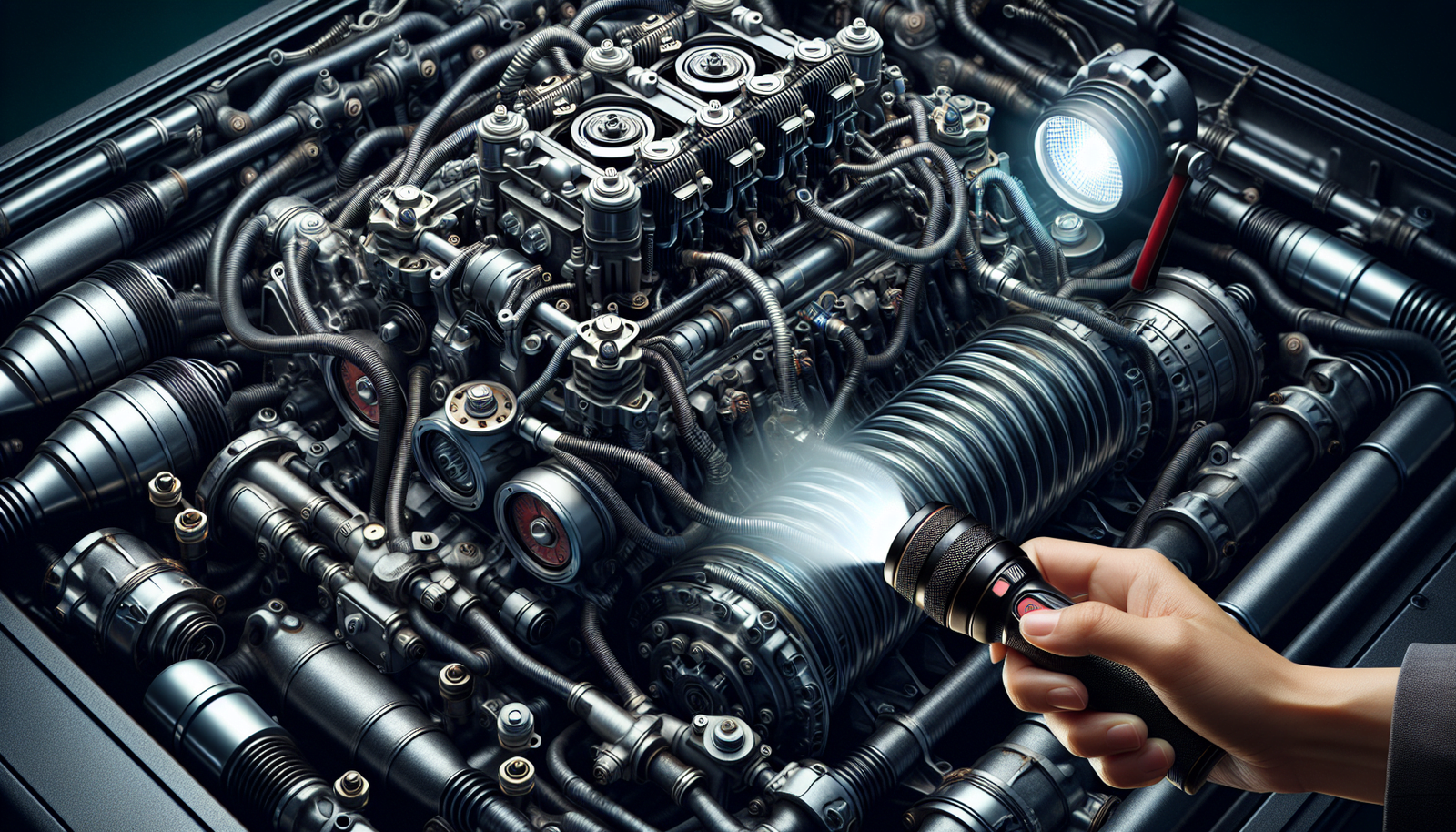If you’re an avid boat enthusiast or a new owner wondering how to keep your beloved vessel in top-notch condition, one of the crucial things you need to learn is spotting potential engine troubles early. This article “Easy Ways To Spot Potential Boat Engine Issues Early” is more than just a guide; it is your blueprint to identifying potential issues before they turn into massive, wallet-draining repairs. From recognizing unusual noises to understanding changes in your boat’s performance, this article will equip you with the necessary insights to keep your boat running smoothly for years to come. After all, forewarned is forearmed!
Understanding Boat Engine Basics
You know, if you’re a boat owner or considering to become one, there’s a bunch of stuff you need to know. One of the most important things to understand is the heart of your boat – the engine. Having a basic understanding of boat engine components and how they work together can make a huge difference in your boating experience, saving you time, headaches, and potentially quite a bit of money.
Recognizing the key components of a boat engine
Boat engines, like those in vehicles, are made up of many components all working in harmony. Some of the key components you should familiarize yourself with include the ignition system where the journey of power begins, the carburetor that mixes air and gasoline, the exhaust system that expels gases, and the cooling system which prevents overheating.
Identifying different types of boat engines
Boat engines come in all shapes and sizes, and it’s essential to know which one you’re dealing with. You’ve got outboard motors which are portable and suitable for small boats, inboard motors for larger vessels that require more power, and stern drive engines, basically a happy compromise between the two.
Knowing the role of each component in engine function
It’s not just about knowing the parts. You have to understand what each piece does in the big engine puzzle – which ones burn the fuel, which ones expel waste gases, which send the power out to the motor. This way you can better diagnose issues when they arise, or even catch them before they become a problem.
Listening For Unusual Sounds
You can tell a lot about a boat’s engine health by its sounds. Much like listening to the rhythm of a heartbeat, paying attention to your boat engine’s noises can provide important insight into its condition.
Noticing if engine noises change or increase
Your boat’s engine hums away in a delicate balance of mechanical sounds. Any change to this symphony, such as an increase in volume or an odd sound, may be indicative of a problem. Take note of strange or abrupt sounds such as banging, ticking or knocking noises.
Identifying different problematic engine sounds
Different sounds usually indicate different problems. For example, a knocking sound might mean there’s a problem with the spark plugs or fuel quality. A high-pitched squeal could point to a malfunctioning belt. A deep knocking noise might mean there’s an issue with your engine’s pistons or bearings.
Understanding what each sound typically indicates
Understanding what these unusual sounds might mean can help you identify problems early. Increased volume could mean exhaust problems while rhythm changes could signify an ignition or fuel system issue. Remember, identifying the potential problem is the first step toward a solution.

Monitoring Performance Issues
Just like you’d keep an eye on your car’s performance on the road, you should also keep track of your boat’s performance on the water.
Tracking changes in fuel efficiency
Changes in how much gasoline your boat uses could mean several things. Perhaps you’re suddenly using more fuel. It might be due to a simple reason, such as increased load or more high-speed cruising. Or it could be a more complex problem with your engine’s fuel system.
Recognizing lack of power or sluggish acceleration
If your boat feels sluggish or seems to lack the power it once had, it could be pointing to problems with your engine. This could be caused by an array of issues, everything from dirty fuel injectors to a worn-out propeller.
Assessing for unusual stalling or hard starts
Stubborn starting or unexpected stalls can be quite a pain. They are often a symptom of more significant engine problems like issues with the ignition system, fuel system, or mechanical faults in the engine itself.
Regularly Inspecting Boat Engine
Doing regular visual checks on your boat’s engine can help spot potential issues early. It’s all about being proactive, folks!
Checking for any physical signs of wear and tear
Look for cracks, corrosion, or broken parts in your engine. Some wear and tear is normal, but excessive or rapid wear could mean trouble.
Assessing for visible leaks or drip marks
Leaks could be indicative of problems with seals, hoses, or the engine itself. Whether it’s oil, gasoline, or cooling fluids, any leak is a red flag calling for immediate attention!
Inspecting hoses, connections and seals
Be sure to examine the state of hoses, connections, and seals regularly. They should be firm and free from cracks or other damage. Damaged hoses or seals can result in leaks, leading to larger engine problems down the line.

Watching For Smoke or Excessive Exhaust
Exhaust can tell you more than you think about your engine’s health.
Identifying the differences between typical and problematic engine exhaust
A little exhaust is normal, but too much can be a sign of an issue. It’s kind of like your boat’s way of coughing when it’s a bit under the weather.
Understanding when smoke colors indicate an issue
Blue smoke usually indicates oil burning, black smoke often points to a fuel system problem, and white smoke might mean there’s a problem in the cooling system. Being able to tell the difference can help you quickly identify corresponding issues.
Addressing excessive exhaust smoke promptly
If you notice excessive smoke or unusual colors, address them promptly to avoid further damage to your boat engine.
Monitoring Engine Temperature
It’s no secret, your boat engine’s temperature is significant, and ignoring it could land you in some hot water – pun intended!
Importance of engine temperature
An engine running too hot can suffer from all sorts of nasty things – warped parts, damaged seals, and, if it gets really heated, a seizure. Monitoring your temperature is one of the easiest ways to prevent these catastrophes.
How to check your engine temperature
Most boats have a temperature gauge on the dashboard. Keep an eye on it, especially when running your boat hard or in hot weather.
What to do if the engine temperature is high
If your engine starts running hot, reduce power or stop to allow it to cool. Persistent overheating could be due to several reasons like faulty thermostats, clogged cooling passages, or low coolant level, and should be addressed promptly.
Checking Fluid Levels Regularly
Engines need fluid – oil, coolant, fuel – to function correctly. Keeping an eye on your boat’s fluid levels is like making sure it’s well-hydrated!
Importance of regular fluid checks
Low engine oil could lead to increased engine wear and possible seizures, while insufficient coolant could result in overheating. Regular checks will help you prevent such issues.
Identifying what each fluid reservoir does
Understanding what each fluid does – lubricating, cooling, cleaning – and how to check their levels will go a long way in early problem detection.
Recognizing signs of low or dirty fluids
Low fluid levels might lead to engine damage. Moreover, if the fluids are dirty or contaminated, they can hinder the engine’s performance. Look for drops in levels and changes in color or consistency.
Identifying Potential Electrical Issues
A well-functioning electrical system is crucial for your boat – from starting your boat’s engine to running onboard lights and gadgets.
Getting familiar with your boat’s electrical system
Familiarize yourself with the boat’s wiring, fuses, switches, and battery. Knowing where everything is and what it does will make troubleshooting electrical problems much easier.
Signs of potential electrical problems
Keep your eyes peeled for flickering lights, non-working gadgets, a weak or slow-to-start engine. These might all be signs of electrical issues – such as a weak battery or failing alternifier.
Safety measures while handling electrical faults
Always prioritize safety. Turn off your boat’s power before trying to fix any electrical issues and avoid handling wiring in wet conditions or with wet hands to prevent electric shock and injury.
Staying Alert for Vibration Issues
Every boat vibrates a bit, but knowing your boat’s usual rhythm can help you catch issues early.
Recognizing excessive or unusual vibrations
Your boat should generally provide a smooth ride. If you start feeling excessive or unusual vibrations, take note. This could indicate several potential problems, from engine misalignment to propeller problems.
Determining potential causes of vibration
Tracking down the cause of unusual vibrations can be a bit tricky. It might require checking a few things – the engine mounts, the alignment between your engine and propeller, possibly even the propeller itself.
Addressing vibration issues promptly
Don’t ignore unusual vibrations. Not only will this make your boating experience less enjoyable, but continued operation with excessive vibrations can lead to more significant damage
Understanding the Importance of Regular Maintenance
Like any vehicle, your boat requires regular maintenance to keep it running smoothly.
The relation between maintenance and early problem detection
Doing routine maintenance can help spot issues before they become serious problems. It’s easier to replace a worn-out belt during a regular check than having it snap while you’re out on the water.
Creating and following a regular maintenance schedule
Just as you’d keep your car serviced, you need to do the same for your boat. Create a regular maintenance schedule for oil changes, spark plug replacement, belt checks and replacement, and other engine checkups.
How regular maintenance prevents serious engine problems
Regular maintenance helps ensure all the parts of your engine are in good shape, and your fluids are clean and full. It’s all the little things that add up to keep your boat running happy and healthy!
In conclusion, being proactive in Maintaining and Understanding Your Boat’s Engine can save you a lot of time, money, and headaches down the road. Happy boating!

